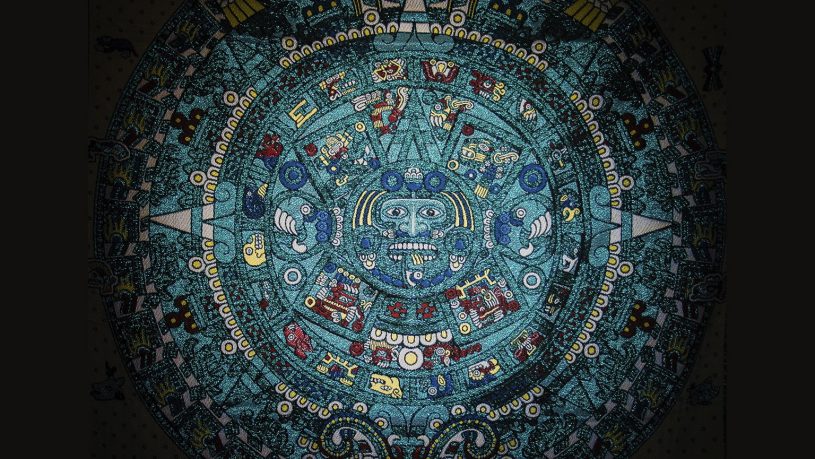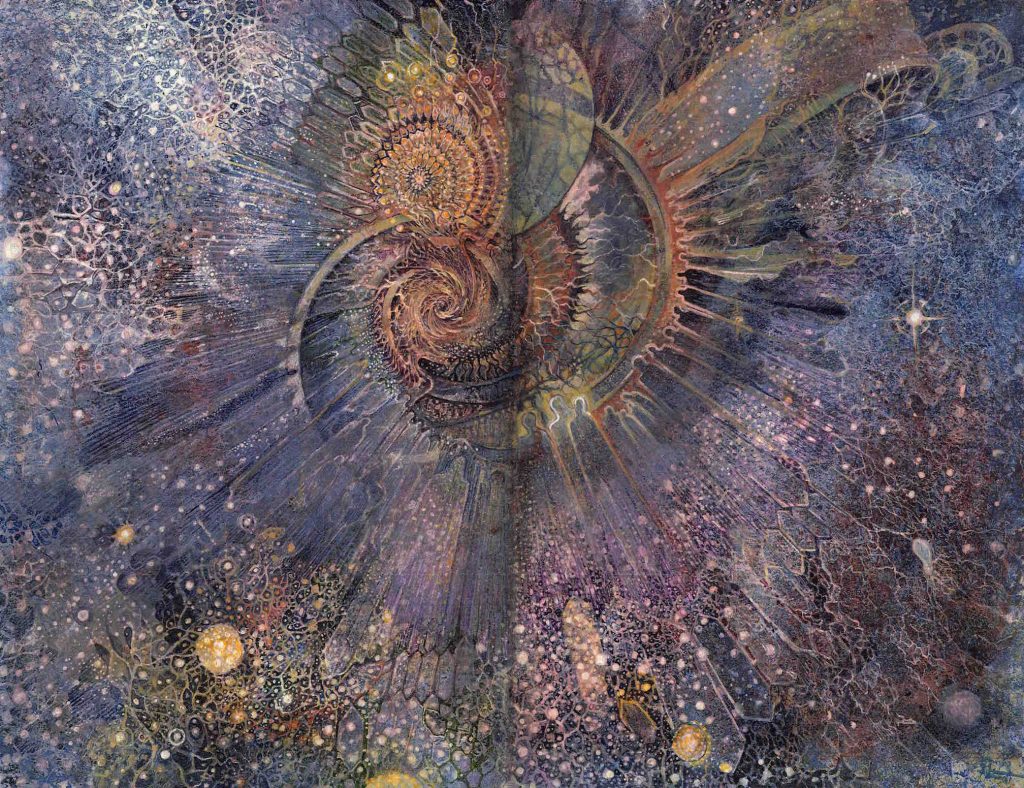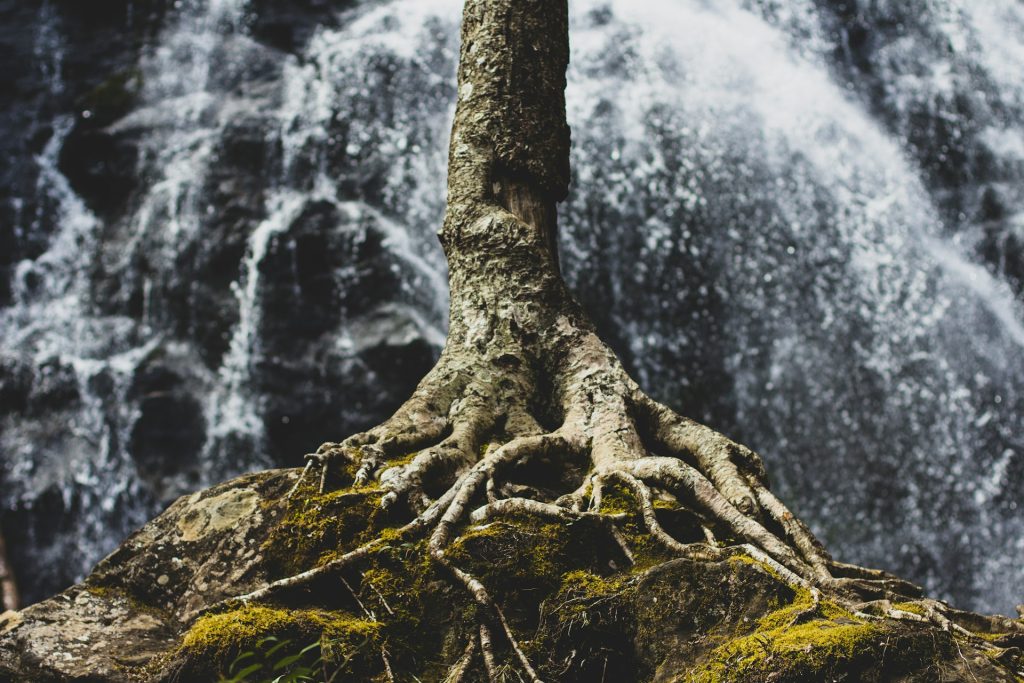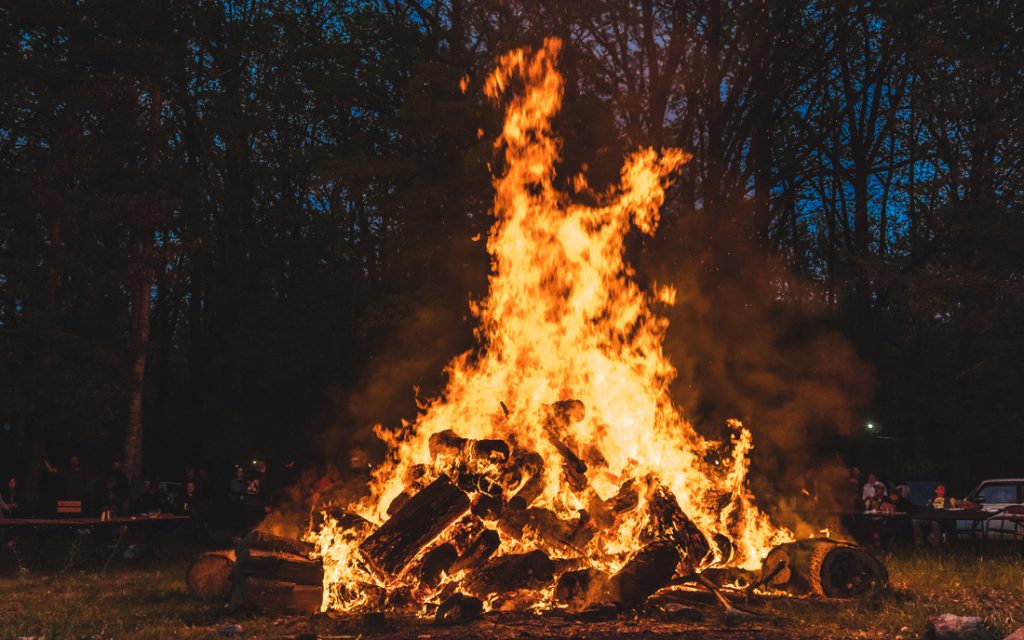Fourteen Recommendations When Facing Climate Tragedy
Editor’s addition: The concept of Deep Adaptation to impending societal breakdown due to climate disruption is spreading around the world. It was first coined in a speech by Professor Jem Bendell in December 2016, but spread rapidly since his Deep Adaptation Paper went viral. His paper has influenced climate thinkers worldwide, including Extinction Rebellion. It is recommended reading. In his lengthy post, After Climate Despair – One Tale Of What Can Emerge, Dr. Bendell reflects on his personal journey. This is an excerpt, reprinted with his kind permission.
…Come the summer of ‘17 I knew I had not given myself space to explore the “deep adaptation” agenda as much as I had wanted to. Within that, I had not developed the kind of equanimity – or peace of mind – about climate chaos that would mean I could work on it directly. I realise many other people must be in this situation.
I see equanimity as important if we are to respond to changing realities without fear, anger or sadness clouding our judgement. I see equanimity as a means of usefulness rather than simply coping emotionally. Where might that equanimity come from? In the past few months I have been in discussions and correspondence with people as I explore the spiritual or metaphysical perspectives that might make some sense in the face of our climate tragedy. I was fortunate enough that my University agreed for me to take a year unpaid leave from September 2017, and this has allowed me time to reflect, read, discuss, as well as participate in various meditative practices. In particular, I have been exploring the idea of “interbeing”, a term from Buddhist teacher Thich Nhat Hahn and popularized by author Charles Eisenstein. Being asked by Charles for feedback on a first draft of his book on climate change also prompted me to clarify some thoughts. So here goes…
Interbeing is a word describing a conscious experience of being more than our physical body and separate mind. It is another way of describing higher consciousness, so as to emphasize its more embodied form. The idea is fairly well established in non-Abrahamic spiritual traditions, as well as within the more gnostic threads of Abrahamic religions. The idea is that although we experience ourselves as separate due to our senses, consciousness is not limited to our brains or bodies. Rather, it is like a field of magnetism or gravity. Moreover, it may be like a field that is not limited in time and space as magnetism or gravity are, instead encompassing all of existence. From this perspective it can be said that consciousness is having an experience of itself through us.
How might interbeing raise you from the threat of depression if you sense the end of everything one can contribute to due to near-term extinction of the human race and the majority of species? Not by making us feel more as one with all humans who will be born to die young. Or more as one with all dogs and cats who will starve to death. Nor by feeling more as one with all the birds in the trees who will die of heat exhaustion. Or more at one with those landscapes we most enjoy seeing and experiencing which will transform out of recognition. Or more as one with the wonderful culture of ideas that we have enjoyed learning and contributing to, but that will vanish into ruins like other lost civilizations. The more we experience interbeing with all these deeply important things, the more we may suffer. An answer may lie in our sense of what there “is” to inter-be with. There are no half measures with interbeing. All is one, as that great phrase explains.
OK, you might say, “We are at one with everything. And if we are lucky we might experience states of consciousness where that feels real to us. But how does that help us deal emotionally with the loss of civilization, the mass extinction of other species and potentially even human extinction?”
I think the answer lies in whether we see that greater consciousness as a source. In particular, does consciousness exist as an original phenomenon that gave rise to matter (and so lies within it, finding new forms through it), or does consciousness arise out of matter (which logically would imply randomly). There is a lot of support in the history of human thought for the former view of consciousness giving rise to matter. Now there is a lot of new scientific evidence for that view, including the latest in evolutionary biology and in quantum physics (which I will summarize elsewhere). If we have the view that consciousness gave rise to and works through matter, then we see how it gave rise to species, all humans and all civilizations. Therefore we are one with the potential for all things.

Thich Nhat Hahn has suggested we take time to reflect on the number of civilizations that have collapsed in the past. We could walk around the ruins, or watch a video of someone doing so. Imagine the thousands of lives, with the joys, heartaches, intense discussions, hopes for the future and stories of the past. All so intense at the time and all now gone. Then consider how these civilizations have kept arising again and again in different places and times. There appears to be an underlying impulse towards them. Or let’s go a step further. Take a moment to reflect on the way our planetary ecosystem has kept producing hominids, most of which never evolved into humans but went extinct. They were bipedal large brained animals with opposable thumbs and in many cases the desires to draw and to burn. Therefore, some scientists are beginning to consider whether evolution is entirely random. That doesn’t imply an anthropomorphic God that designs species, but a field of consciousness that gives rise to similar patterns of life.
In one ancient tradition this is called the Akashic Record. It means that who we are and what we do now is both influenced by and will influence an eternal record that pervades all time and space. If a collective consciousness is understood and experienced in this way, the pain of the passing of life as-we-know-it may be lessened. Because we are one with the source consciousness that gives rise to all life and will do so again and again.
Many people who are troubled by climate change are “environmentalists” and many such people are interested in reconnecting with non human “nature” as a means of sensing our interbeing. While this can be a useful first step, it may extend the awareness of self only partially in both time and space and could lead to new waves of pain, anger, sadness, distraction, and therefore distorted thinking on what to do now. Therefore, the climate tragedy invites us to see interbeing as all or nothing. You might rightly point out that I am at risk of proposing a worldview because it makes one feel better. This subjective distortion is the root of confirmation bias as well as the flaw of so many religions. “It must be right because it feels wonderful.” I currently have no answer to that problem, apart from that I know in my own life I have not arrived at this perspective quickly as a means of tranquility. Indeed, I think the more I embrace it and bring it into my daily consciousness, the implications may not be so easy after all.
The pain associated with an awareness of climate tragedy may be deadened with this perspective on total interbeing, but there remains a question of meaning for our individual lives. Given that our previous ideas of purpose and meaning have been shaken with the awareness of impending collapse, most people would seek a new basis for the meaning of their lives. That is something I will need to spend more time on this year, perhaps always. But I am already wondering whether our meaning can be found within a purpose of approaching this moment with as much awakened connection to universal source consciousness as possible. In that way, contributing to the Akashic memory of that source consciousness at an unusual time in existence. I have a feeling that such an approach would involve heightened compassion and wonder. I also sense that the positive “vision” for what we can work towards while accepting a coming collapse will be about communities that nurture that compassion and wonder. But it is something I need to reflect on and discuss some more.
The perspective I have just expressed assumes some “free will” within us. Or to put it another way, some ability for original phenomena to be created by us, within us, to then add back to the source consciousness. How is it possible for there to be any agency in a part of a whole if all is one? How would we know if our view that we have free will isn’t actually determined for us? We don’t. But if we didn’t have free will to exist in ways that create novel input into the akashic record, then what is the consciousness within individual organic lifeforms for? Perhaps nothing. Or perhaps simply to express the intention of the whole. And that is what I have to conclude at this time: I do not know if there is any individual agency. Nevertheless, the implication is that to approach life from from a heightened connection to source consciousness will more likely align with the purpose of source consciousness, if there is one. Now is when we begin to speculate. It appears that source consciousness tends to diversify the complexity of matter. It appears it creates sentient beings who wish to avoid pain and experience pleasure.
It appears that the process of unfolding complexity leads to new forms of reflective consciousness. Therefore, I could choose a purpose to reduce suffering, promote joy, enable reflection, and unleash emergence. This does not sound so different from the great wisdom traditions, as well as the common sense knowledge of most people I know, if not deluded by obsessions over race, nation, politics, status, wealth or religious correctness.
I am currently in Ubud, Bali, which attracts many spiritual seekers from around the world. It is a Hindu island, with an animist flavor, and many religiously observant families. Many of the foreigners participate in what some would call “new age” spiritual practices, such as shamanic breathwork or cacao ceremonies. Despite that, I have not yet discussed any of what I have written above with the people I meet here. Because I have often felt lonelier with people who are overtly on a spiritual path. When I hear of their focus on positive thinking, visioning, and being in touch with one’s body and emotions, I wonder if this is naive and self-serving. Yet the effect is nice enough and I don’t want to upset them. It is a cliche that some of the people with the most needs and fears gravitate to either religious devotion or new age spirituality. I do not think the worldview I have described in my writing today is an immediately self-serving one. It would be far easier to dismiss climate tragedy as hype and block it out as one does a warrior pose while breathing incense. I am discovering, therefore, that I may need to be proactive if I want to be part of a community of “spiritual” people, approaching life in full awareness of the climate tragedy.
Fourteen recommendations when facing the possibility of climate tragedy
Here are fourteen recommendations based on what has been helping me, or what, in hindsight, I think could have helped me!
- Return to, or explore afresh, the idea of a divine or a spirit or a consciousness or a God that is prior to the Earth and moves through the Universe right now and forever more. Do so without seeking a simple story of explanation but a sense of faith that there is an existence and a meaning beyond our culture, our species and our planet. Such ‘faith’ helps anyone to experience and process the inevitable difficulties and traumas of life.
- Listen to those stories from people both past and present who tell us that despair is not the end and therefore does not have to be avoided. Recognise how many spiritual traditions see despair as a gateway to our growth.
- Beware when people are promoting their views on what they think the implications of information will be, rather than views on the information itself. The impacts of certain information about climate on other people’s motivations are not certain, and in many cases the darkest analyses have triggered a new level of creativity and boldness. Instead, look at the information and analysis directly for yourself, without second guessing what some interpretations might lead to.
- Recognize that any emotional or intellectual resistance you may experience to information which implies catastrophe may come from what you have been consciously or subconsciously telling yourself about your own self-worth, purpose and meaning. Then remember how your views of yourself and the world have evolved through your life and still can.
- Don’t panic. Give yourself time to evolve both personally and professionally in response to your emerging awareness, but ensure you stay connected to a group or an activity which keeps reminding you of the basis for your emerging awareness.
- Recognize there is much work ahead for you to reconstitute concepts of meaning and what’s good and to align your life with those. It will not happen overnight, yet it will not happen if you do not give time to this work. There may be some time needed to bridge your existing life with the way you will want to live in future.
- Plan more time and resources for you to do things which inspire wonder at life. This could be more time in beautiful environments, or with uplifting music, or in contemplation, or through creative writing, or being with loved ones and close friends. That means freeing up time from other activities such as TV, social media and mainstream news. It may also mean downshifting from your workload.
- Look for opportunities for supported self-reflection and sense-making. This is because your worldview and self identity will undoubtedly transform overtime as you process the new information and analysis.
- Expect a catharsis, both personal and professional. This will occur because the subconscious or conscious limits that you placed on yourself until now will be lifted. Go with that rush of energy and creativity, but be vigilant that those new activities don’t become so consuming they distract you from the personal work you still need to do.
- If you are a mission-driven professional in fields related to environment or social justice then expect that you may be driven to rebuild a sense of self worth and that this need of the ego, while natural and potentially useful, could become a frantic distraction.
- Expect a change in your personal relationships and how you spend your spare time. Some forms of small talk and light-hearted social interaction with acquaintances may seem pointless, while you may wish to spend more time with close friends and family. While for some this could be a welcome rebalancing, for others this can become a vector of reclusiveness and loneliness. Therefore it is important to find new ways of connecting with people on the new levels that feel meaningful to you.
- Create a positive vision of people sharing compassion, love and play. It may feel that an eco-tragic outlook means you cannot have any meaningful vision of a better future for yourself, your community, or humanity. An absence of something positive to work towards can be destabilising and limiting. Some people will think you are depressed – or depressing – and need some “positive thinking”. For a personal vision, the answer may lie in developing a vision for how you will be approaching life, rather than imagining attributes of a lifestyle. This may parallel the dimensions of a collective vision. A future full of love and learning, rather than flying cars and fancy robots, could be a way to imagine a more beautiful world. And remember, the future will still be beautiful in its own way, no matter what life forms are in it – or if your favourite town is under water!
- Don’t get dogmatic and avoid those who do. That comes from recognising that our terms for phenomena are not the same as the phenomena themselves. The words we use imply things which may have effects on us but aren’t necessarily so. Words like nearterm, civilisation, collapse, and tragedy, are our words, and may trigger ideas, images and emotions which aren’t inevitable consequences of the phenomena being described (more on that “social constructionism” later).
- Do not prioritise maintaining your own mental and physical situation at the expense of the need to act in solidarity with future generations who will live with the future we are creating for them.







Ok. I stopped reading when I saw the fire photo, it is not China, it’s Montana, taken by a friend of mine. This photo has been mislabeled way too many times. Photographer: John McColgan
Thank you, Barbara, for letting us know. We are always open to valuable feedback.
Thank you Barbara. I regret we were mislead. I will remove the photo.
Beautiful, Jeb. Thank you.
Kosmos: Where is the share button? You really should embed share buttons in the article…
Curious. Jem has gotten a lot of traction out of advocating grieving. Face our despair; we can get through it. What’s missing? No proactive vision. The people who do the best with a diagnosis of cancer are the ones who proactively try to turn it around. Some succeed; no guarantees.
I am committed to the well-being of coming generations, and I am committed, with others, to doing my best to turn things around.
This involves inspiring thoughtful mainstream commitment to doing everything required to pull out of our ecological nosedive. The Great Transition Initiative is a support platform with tools and strategy for reaching the mainstream. It champions the goal of transitioning to a life-affirming culture, rather than continuing on our present course of ecological self-destruction.
It may indeed be too late. I choose to do my best. I would like to think that you will want to work with us
Andrew Gaines
Great Transition Initiative
andrewgaines@greattransition.net
http://www.GreatTransition.net
Accelerating the transition to a life-affirming culture